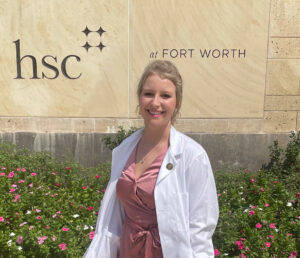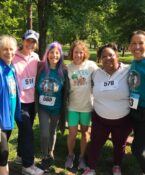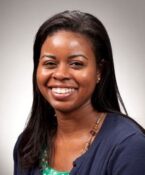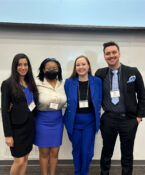No substitute for on-the-job experience in health care
 I’ve learned more in the last five days than I had over the last year. Don’t get me wrong, being in medical school is no joke, and the hours I’ve spent in the classroom are undoubtedly valuable, but it is nothing compared to being on the job.
I’ve learned more in the last five days than I had over the last year. Don’t get me wrong, being in medical school is no joke, and the hours I’ve spent in the classroom are undoubtedly valuable, but it is nothing compared to being on the job.
I just finished my first year at the Texas College of Osteopathic Medicine in Fort Worth, Texas, and I have digested a mountain of information as all medical students must. Still, I had little experience seeing or treating real people with real needs. All of that changed during one week of my summer break.
In serving the rural communities around Alpine, Texas, my peers and I saw a total of 122 patients. The stats are astounding, and I would like to share them. On our first day in Van Horn, we saw 16 patients, or 0.82% of the population.
On the second day, we put the work in and did a double clinic. We saw 34 patients in Sanderson, which is 4.92% of the population. In the evening, we saw an additional 22 patients in Marathon. That number is a whopping 6.03% of the population! On the last day we spent in Alpine, we saw the highest number of patients yet. Fifty locals walked through the door, allowing us to learn from and treat their needs.
Those 50 awesome people made up 0.86% of the population. I grew up in West Texas, just four hours north, and I knew even before entering the world of health care that we were lacking. I went to school in a town called Sundown with a population of fewer than 3,000, so, no surprise, there were only 32 kids in my graduating class.
We did not have a doctor in town or a clinic, so I understood to an extent what rural West Texans experience regarding health care. However, I did not realize how much a student like me can learn from actually treating patients with these conditions. Every human I served that week taught me something. Each of them opened my eyes to the realities of West Texas rural health and the existing disparities.
More importantly, the experience showed me we must do more for these communities and give more of ourselves to serve them. Our group of 30 included physicians, TCOM students, pre-health undergraduate students from Colorado Christian University and an incredible team of coordinators. I met some inspiring and driven people there.
I also got the opportunity to get to know some of my classmates better, who I believe will become fierce doctors and friends. Additionally, the people of the community were amazingly kind and received us with open arms. It felt just like the West Texas I grew up in and have come to love. The patients we served were no less remarkable.
I would like to share one case in particular that stood out to me. I will call my patient Marigold, for the sake of this piece. Marigold initially came to the clinic in Marathon to get a school physical for her child and decided to see us for low back and shoulder pain. While taking a thorough history, she informed me that she had been living with diabetes for more than 20 years. I learned on the first day in the clinic that it is always a good idea to inspect the feet of diabetic patients to ensure they are healthy.
While doing the routine exam, I noticed her feet were quite injured and possibly infected. I had never seen injuries like this. I knew that diabetes could cause loss of feeling in the feet and slower healing times, but I had yet to make the real-world connection. Marigold explained that she had unintendedly burned her toes, which weren’t healing well. With my attending physician’s help, we cleaned and protected the injuries on her feet and referred her to the Family Health Services Clinic in Alpine.
Fortunately, I was also able to treat her shoulder pain and practice my osteopathic manipulative technique before she left. I even taught her daughter, who was there with her, so that they could continue management at home. After 14 hours of work that day, she was all I could think about. I wanted to follow up with her and ensure she was cared for. The following day, we set up a clinic in Alpine.
I waited all morning for her to visit the FHS clinic next door. When she did, I got to stay with her from start to finish. I was able to present her case to the resident on duty, do another foot exam, run through treatment options, and learn about follow-up care for her condition. We connected her with the resources she needed, and I got to practice all the skills I learned in school with a real person.
During this time in rural West Texas, I got to know my patients and formed connections built on trust, which I had never experienced. The resulting feeling of fulfillment is indescribable. This time has taught me how to be a doctor in the field, not just in the classroom. It taught me real medicine but also genuine empathy and humanism.
I thank Marigold and all the patients I saw for allowing me to learn and grow as a person. I hope soon to be able to bring a free clinic to the areas around my hometown and give back to the communities that built me. An experience like this can’t be matched. There is no substitute for real life. I hope this inspires others in the healthcare world to serve their rural communities because, like me, they will learn more in those five days than they have in the last year.





Social media